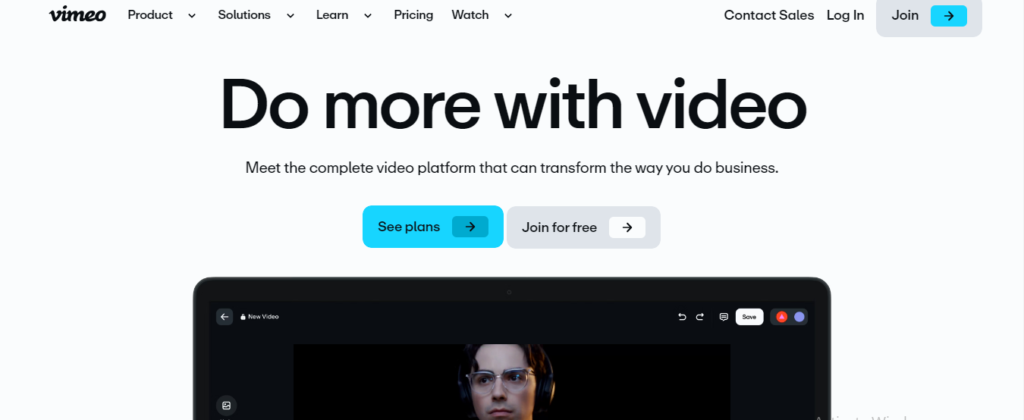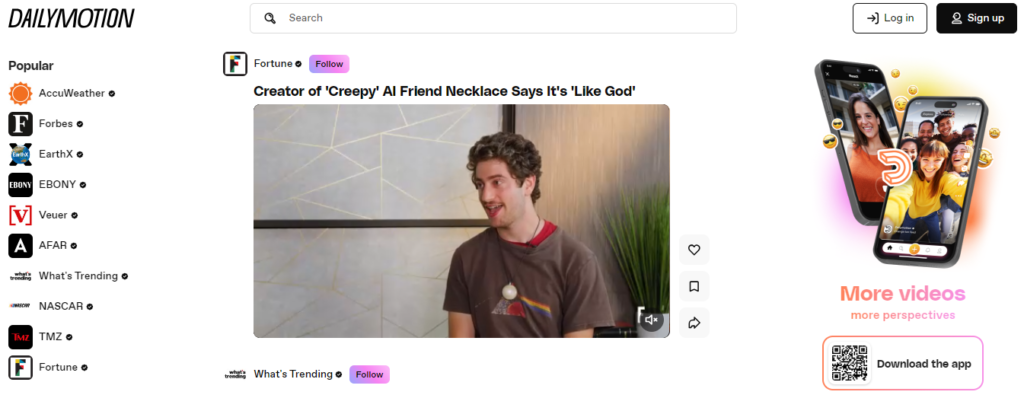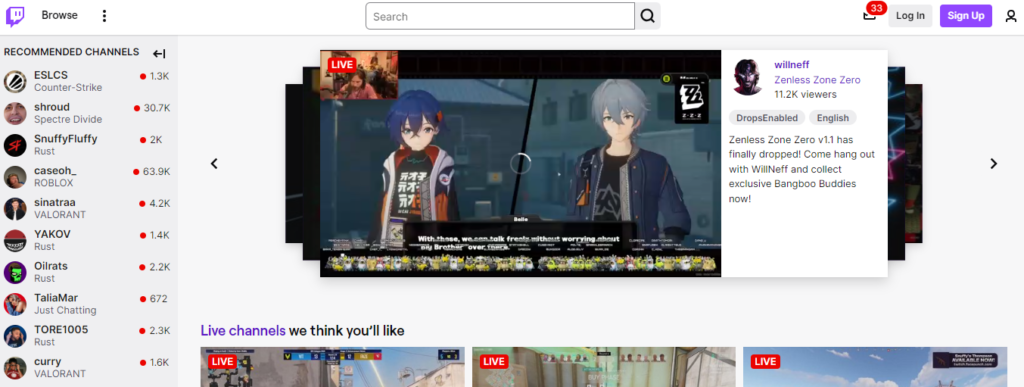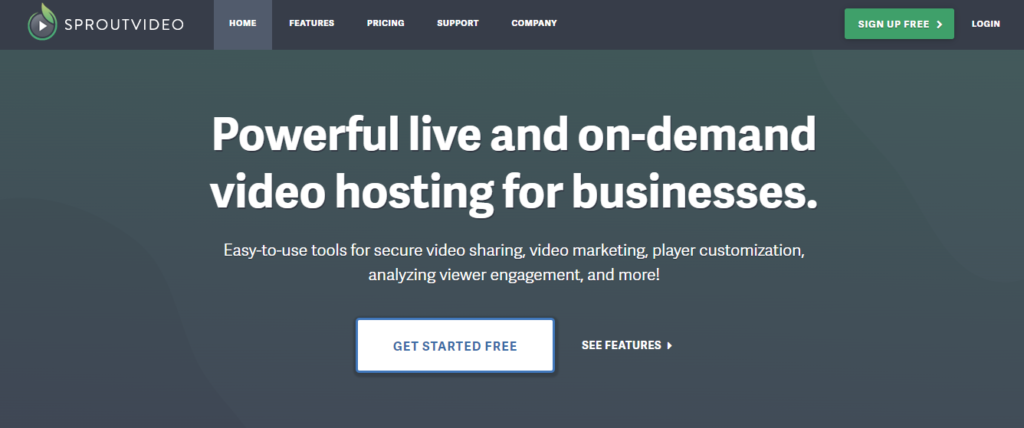YouTube, the world’s largest video-sharing platform, has undeniably shaped the way we consume and create content online.
Its vast library of videos, ranging from cat videos to educational lectures, has captivated audiences worldwide.
However, the online video landscape is evolving rapidly, and several other platforms have emerged as strong competitors, each with its own unique features and target audience.
YouTube: A Giant with Competitors
YouTube has grown super fast and makes a lot of money. It started as a small website but is now worth a lot!
Even though YouTube is the No.1 video-sharing platform, the Second Major Search engine after Google, and the Second Major Social Media Platform after Facebook, other websites try to do the same thing.
This is good because it gives people more choices. Some websites are like YouTube’s friends who try to be as cool as it is! are:
Top 20 Competitors of YouTube
In this blog post, we’ll delve into the top 20 competitors of YouTube, examining their key differentiators and understanding why they’re making waves in the video-sharing industry.
- Vimeo – A Different Kind of Video Site
- Dailymotion – A Global Video Hub
- Twitch
- SproutVideo
- IGTV
- Metacafe
- Veoh
- TikTok
- D.tube
Vimeo – A Different Kind of Video Site

Vimeo, Inc. is an American video hosting, sharing, services provider, and broadcaster headquartered in New York City. This was Founded: in November 2004; 19 years ago by Zach Klein; Jake Lodwick. Vimeo focuses on the delivery of high-definition video across a range of devices. Vimeo’s business model is through software as a service.
The video platform is trusted by 287 million creatives, entrepreneurs, and businesses. Everything you need to create, manage, and share stunning videos.
Vimeo is a place where you can watch videos. It’s like a special club for people who like high-quality videos. Unlike YouTube, Vimeo doesn’t have ads. You have to pay a little money to use Vimeo, but you get to watch videos without any interruptions.
Vimeo is popular with people who make cool and creative videos. It’s like a fancy movie theater for videos!
Dailymotion – A Global Video Hub

Dailymotion is a French online video-sharing platform owned by Vivendi. North American launch partners included Vice Media, Bloomberg, and Hearst Digital Media. This was founded in 2005 by Benjamin Bejbaum, Olivier Poitrey. It is among the earliest known platforms to support HD-resolution video.
Dailymotion is another place where you can watch videos. It’s a big company that helps people understand what kind of videos people like to watch. They work with lots of other companies to share videos and make sure people can find the videos they want to see.
Dailymotion is like a big worldwide video playground! People from all over the world watch videos there. It’s really popular in places like France and other parts of Europe.
Dailymotion has lots of different videos, and it’s good at finding videos that people might like. It’s like a smart video helper!
Dailymotion is good at figuring out what people like to watch and helping video makers reach more people.
Twitch

Twitch is a prominent online platform specializing in the realm of video games and electronic sports (esports). It has established itself as a central hub for the live streaming of gameplay, fostering a vibrant community around interactive entertainment. Twitch was Launched on June 6, 2011; 13 years ago by Justin Kan; Emmett Shear; Michael Seibel; Kyle Vogt; Kevin Lin.
Acquired by Amazon, Twitch has transformed into a substantial revenue generator, amassing a significant user base of 3.2 million subscribers. The platform’s core function revolves around broadcasting live video content primarily focused on gaming, including high-profile esports competitions. These events attract a dedicated audience captivated by the real-time nature of the content and the interactive experiences offered by the platform.
SproutVideo

SproutVideo is a specialized technology company that provides video solutions catering to the needs of businesses. Its core competencies lie in video hosting, video marketing, video security, and video storage. The company operates on a subscription-based model, charging $25 per month for its suite of services.
As a video platform, SproutVideo hosts a vast repository of digital content, amounting to millions of videos. Beyond hosting, the company offers expert guidance to businesses in establishing and optimizing their video content strategies. This value-added service has contributed to the company’s overall success, generating a substantial revenue of $50 million.
IGTV

IGTV is a long-form video platform introduced by Instagram in 2018. As a subsidiary of Facebook, Instagram leveraged its existing user base to propel IGTV into rapid success. The platform offers a vertical video format, accessible both within the Instagram app and as a standalone application.
IGTV’s primary function is to accommodate longer video content than Instagram’s standard feed, thereby increasing user engagement and platform traffic. With over 1 billion posts shared monthly, combining images and videos, Instagram, including IGTV, has become a dominant force in social media.
The platform’s primary revenue stream is advertising, with ads integrated into both video and image content. In 2018, Instagram, as a whole, generated a substantial $20 billion in revenue, largely attributed to advertising.
Metacafe
Metacafe is a video-sharing platform established in 2003 that focuses on delivering short-form video content. Its primary content categories include video games, music, television, and film, targeting an audience seeking entertainment. The platform boasts a global user base exceeding 52 million users.
To sustain its operations, Metacafe relies solely on advertising revenue. A distinctive feature of the platform is its proprietary video ranking technology, designed to curate and present the most engaging content to users.
Veoh
Veoh is a video-sharing platform founded in 2005 by American entrepreneur Dmitry Shapiro. Similar to YouTube, Veoh offers a platform for users to watch movies and TV shows. A key differentiator from YouTube is Veoh’s provision of high-definition (HD) video content and the ability for users to download videos for offline viewing.
TikTok
TikTok is a groundbreaking social media platform originating from China that has rapidly gained global prominence. Its core function is to facilitate the creation and sharing of short-form video content.
By providing user-friendly video editing tools and a intuitive interface, TikTok has empowered a vast audience to produce and distribute engaging video content.
This combination of factors has propelled TikTok to unprecedented success, captivating users in both developed and developing nations.
The platform’s short video format (approximately 55 seconds) has become synonymous with its brand identity.
TikTok has cultivated a massive user base, surpassing 500 million active users, and has generated substantial revenue, exceeding $8.4 billion, primarily through advertising. Now TikTok is considered among competitors of YouTube in short Videos.
D.tube – A Decentralized Video Platform Focused on User Privacy
D.tube, launched in 2016, is a novel video platform built on a decentralized blockchain model. This unique approach sets it apart from traditional video-sharing platforms by prioritizing user privacy and offering a revenue-sharing mechanism.
Key Features:
- Decentralization: D.tube operates on a blockchain network, eliminating the need for a central authority to control user data or content.
- Privacy-focused: D.tube prioritizes user privacy by not collecting any personal data from its users. This has earned the platform significant respect and trust from its user base.
- Reward System: The platform’s blockchain model allows users to earn cryptocurrency rewards for their contributions, such as uploading videos or engaging with content.
- Profit Sharing: D.tube shares a portion of its revenue with its registered users, potentially creating a more sustainable and user-centric ecosystem.
Challenges:
- Limited User Base: While D.tube offers a compelling value proposition for privacy-conscious users, its decentralized nature and relatively new status may limit its user base compared to established platforms.
- Exposure: The limited user base may restrict the overall reach and exposure for content creators on the platform.
Overall, D.tube presents a promising alternative for users seeking a privacy-focused video platform with a built-in reward system. However, its long-term success will likely depend on its ability to attract a wider user base and overcome the challenges associated with its decentralized nature.
YouTube SEO EXCELLENCE
Top 10 Freelancing Platforms for YT SEO Services
Best FREE Platforms to Learn YouTube SEO | Boost Your Channel’s Growth
Best YouTube SEO Tools: Magic Helpers for Your Videos
YouTube SEO: Complete and Comprehensive Guide
Top 20 YouTube SEO Experts You Should Follow to Enhance Your Channel’s Visibility




